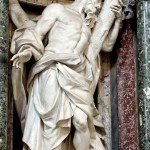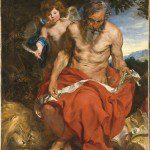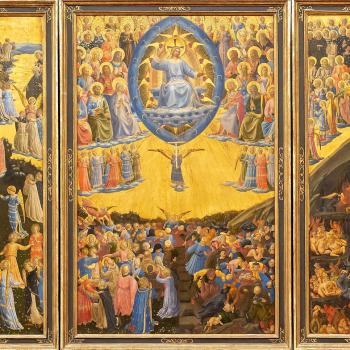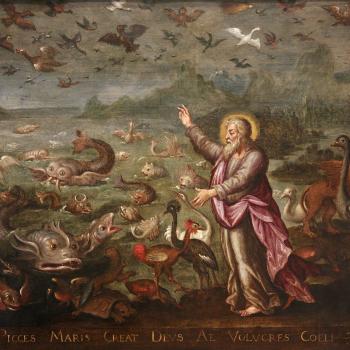![By Sumeet Moghe (Own work) [CC BY-SA 3.0 (http://creativecommons.org/licenses/by-sa/3.0)], via Wikimedia Commons](https://wp-media.patheos.com/blogs/sites/637/2017/01/Asiatic_Wild_Ass.jpeg-200x300.jpeg)
Abba Anthony heard of a very young monk who had performed a miracle on the road. Seeing the old men walking with difficulty along the road, he ordered the wild asses to come and carry them until they reached Abba Anthony Those whom they had carried told Abba Anthony about it. He said to them, “This monk seems to me to a ship loaded with goods but I do not know if he will reach harbor.” After a while, Anthony suddenly began to weep, to tear his hair and lament. His disciples said to him, “Why are you weeping, Father?” and the old man replied, “A great pillar of the Church has just fallen (he meant the young monk) but go to him and see what has happened.” So the disciples went and found the monk sitting on a mat and weeping for the sin he had committed. Seeing the disciples of the old man he said, “Tell the old man to pray that God will give me just ten days and I hope I will have made satisfaction.” But in the space of five days he died.[1]
This saying serves as a warning against presumption. Just because someone is seen to do a miracle, we do not know their spiritual status, nor what will come after the miracle. It could have been granted to them for their sake, not because they were holy, but because God in his love hoped the miracle would encourage spiritual reform. It could be that the miracle did not come from God, but from some other source. Or it could be that someone had, up to a point, engaged in a holy walk of life, and so they were able to do something extraordinary from the grace which they embraced, only to turn away from that grace because of the pride they felt for doing such a miracle.
In this saying we are told of a young monk who was able to perform a rather minor miracle. The young monk was able to have wild assess help relieve the burden of old men, but who they are, whether they were also monks, is something which cannot be ascertained. Be it as it may, it is not the miracle, but what afterward, which represents the key element of the story.
After the miracle, the young monk fell into some sin – we are not told which — and feared for his own perdition. He wanted to know if he could repent and be saved, and so he asked Anthony to pray that he would have ten days to make restitution. The story ends telling us that he only lived for five more days.
As with the ambiguity at the beginning of the saying, with no clear indication who was helped, so we are left with ambiguity at its end. Perhaps this was done in purpose, and so the lack of clarity at the beginning is to help the audience realize that it ends with a similar lack of clarity. The story is open-ended as to what happened to the monk upon death. It is easy to assume, because he died before the ten days were up, God condemned him; but that is every bit a presumption as the kind the young monk seemed to have before he fell into sin. Mercy and grace can come immediately after compunction for sin, and the young monk, having once attained some level of holiness, would have realized more than most the loss he suffered due to his sin. He mourned because of the sin he committed, and he wanted to do all he could to do as penance for that sin. Because of all this, there is room to hope that he did not need the ten days, that his desire was to do penance in excess, and that God’s grace was sufficient for him. He had true metanoia, and sinned no more, so God lessened his burden at the end.
Certainly the monk once presumed himself to be great, thanks to the miracle he performed, and so lost his way with his pride (perhaps it was pride itself which was his sin, although it is likely it opened him up to some other, unstated sin). He presumed too much for himself, but we must also not engage such presumption and assume that because of his sin, he was incapable of being saved in such a short time.











